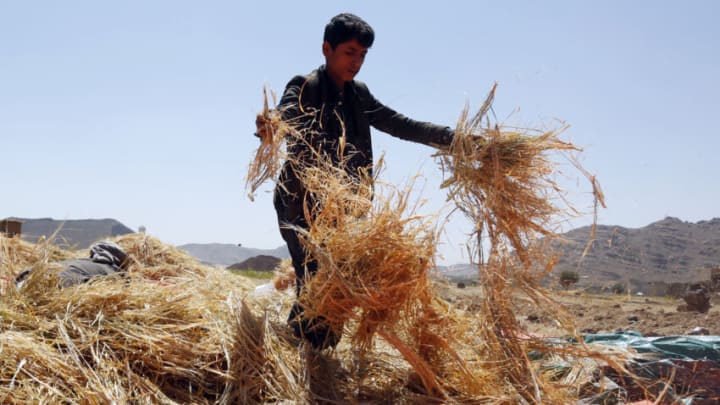As Guilty Eaters, we love to look at the food we eat as passion. Many of us home cooks and restaurant goers, we take to eating as a pastime and not just a necessity for survival. Today though, we’ll be taking a look at the foods we eat, and the effects they have on our world.
If eating was just about survival, we could eat 3 meals a day with a few grams of carbs, a veggie source, and a protein source and survive just fine with water as well, but that wouldn’t be very interesting now would it?
For us foodies, no. For someone out there who has never tasted a juicy cheeseburger, or a bag of cheesy nachos, the missing component would never be missed because they never tried it, so they wouldn’t’ know what they were missing essentially.
But for foodies, eating is an endeavor that goes way beyond survival. Eating, as stated above, is a hobby that we go to, sink our teeth into and seek, from place to place, and for some, from country to country.
But does some of our food have effects on our planet? And what more, are they negative effects?
Of course many of us do know that the food we eat, and how it’s prepared, can indeed affect our planet, but maybe so many more of us don’t know that it is some of the more ancient food prep practices that now, all these years later, are hurting our environment the most.
We all know that big business mass food production conglomerates have in the past hurt the planet. The waste of such items or even the chemicals involved in packaging the food, can be harmful and dangerous.
A perfect example of this is the book by writer and professor, Jonathan Harr, entitled A Civil Action. It was later made into a Hollywood film starring John Travolta. The novel was non-fiction and based on research that Harr did, working diligently for 7 long years, according to his Wikipedia page.
The research he did found that a high volume of children in a particular US town developed leukemia—many passing away from the disease. After the lawyers contacted for help discovered that the water in the town—the drinking water—is contaminated with trichloroethylene, they dig further, detecting that a company named Riley Tannery was illegally getting rid of the waste from its manufacturing of leather—specifically the waterproofing agent (and others) involved in the tanning of leather—and sued the company’s umbrella corporation, Beatrice Foods.
The company eventually settled, each family receiving a small sum…a sum that in no way could ever make up for the life of a child, or any other living thing…no amount of course would ever make up for that.
But this here bit of research that I’m about to get to, reminded me of this story…and it is an example of large manufacturing companies and yes, even big conglomerate food goods companies, and how they affect the environment and our lives, or can.
In this case, the Washington Post breaks down exactly how some of the more major food categories we eat affect the earth.
Ben Halpern, who is a professor at the University of California in Santa Barbara, had this to say about their research and the state of the world because of what was uncovered in general:
"“We need to be thinking about the multiple ways that food affects the environment…The results we’ve presented show how you can use more information about these multiple stressors and the global scale of our food production consequences to influence your individual choice.”via The Washington Post (link above)"
Cattles and pigs are at the top of the list apparently. Cattle, because of ‘greenhouse gas emissions,’ and pigs because of the pig waste that essentially pollutes bodies of water.
Algae blooms form in bodies of water where pig waste is disposed of, and of course water moves and moves fast and spreads these deposits, which in turn remove the oxygen content from the water…and if you remove oxygen content in water, what happens to fish?
You guessed it folks…less fish. These zones are known as “Dead Zones.” Yeah…like the Stephen King novel, only a different villain is present here, of course…or perhaps it depends on how you look at it. The villain can be man in this case…the evil force, pollution.
Flounder, cod and halibut fishing actually harms the environments—specifically the sea floor where they are fished, and because of this, these three particular fish are considered to be up there as well, as far as the food we eat harming the planet is concerned.
For the record, rice and wheat are also culprits here, and all because of the water it takes to grow them….
So no, in the end, it wasn’t exactly conglomerate businesses directly harming our earth and the people in it by getting rid of waste illegally, as was the case in the book mentioned above by Jonathan Harr, but the natural way of farming and fishing…the way we’ve done it for the last 10 decades or so in this more modern way we know today—farming hasn’t changed all that much, believe it or not, when looking at general practices and not equipment—or if we look even further back, some of these mass production practices that have harmed the environment, and not just in food, have been practiced since the industrial revolution (1760 to approximately1820–1840).
So, in the end that’s definitely staggering, and is a perfect example of what’s got to change: Our old ways, because in the end, they’re just not working any more.
